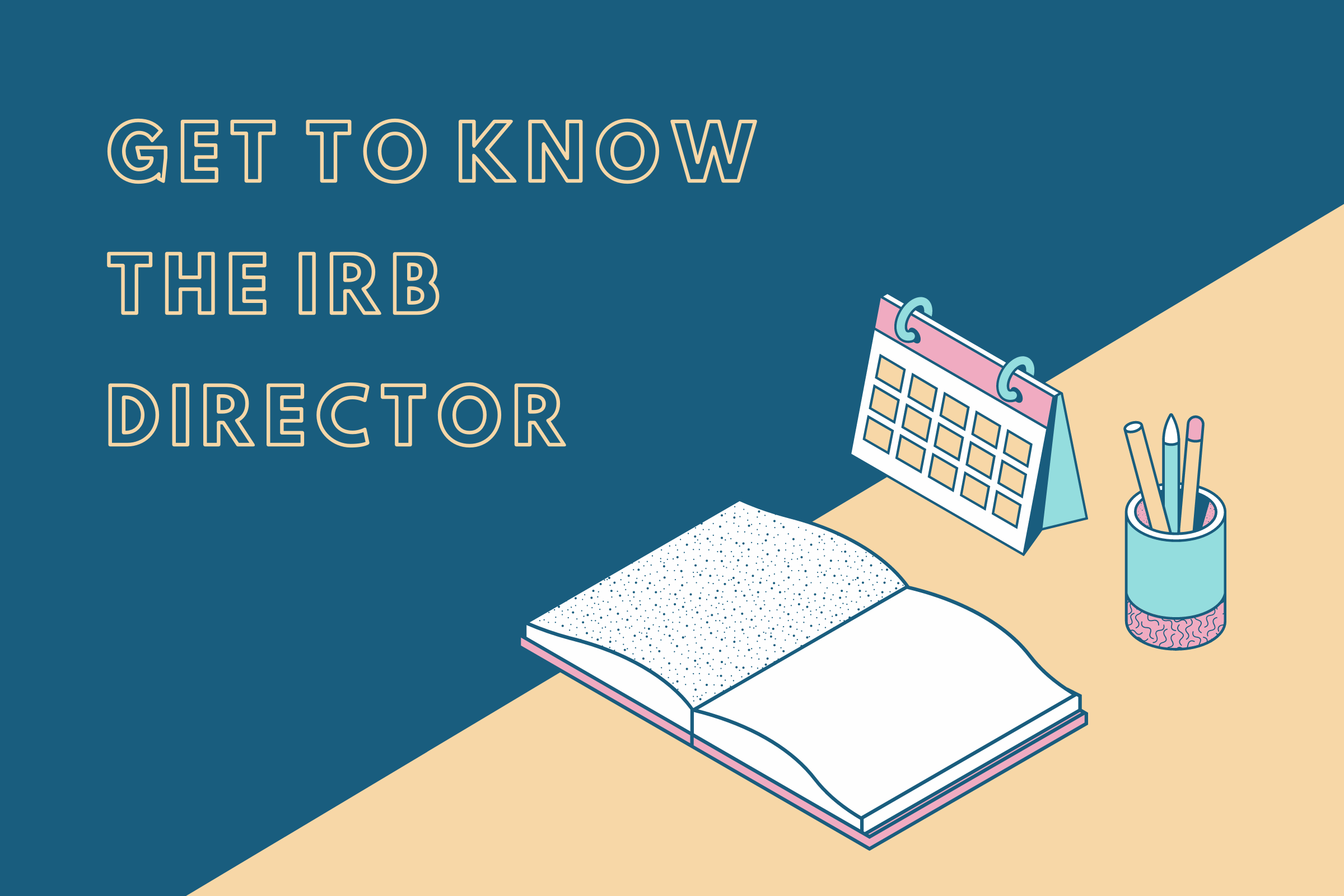In a conversation with Dr. Myra Luna-Lucero, Research Compliance Director, Clara Haneul Yoon, Research Compliance and Ethics Intern, remarked that student researchers often do not know how best to communicate with IRB administrators regarding their concerns about research with human subjects.
While the IRB office has a plethora of online web sources (e.g., How to Submit, FAQs, Doctoral Student Guide, Masters Student Guide), a researcher may need to connect one-on-one with an IRB administrator. Although a 1:1 connection is not always feasible (there are many more researchers than there are IRB administrators), if a researcher has exhausted online resources, mentor connections, or is struggling to find an answer to their specific IRB questions, then they should reach out to the IRB office either via email (IRB@tc.edu) or by setting up an appointment during office hours.
Building relationships with IRB administrators is an important step to ensure a smooth IRB protocol review process. To that end, this article is aimed at helping researchers “get to know the Research Compliance Director” and to demonstrate how the IRB is central to TC’s research goals.
The protection of human participants is of the utmost importance for practical and ethical reasons. The Institutional Review Board (“IRB”) is an administrative committee of Teachers College (TC) whose purpose is to ensure that the rights and welfare of human subjects of research conducted at or sponsored by TC regardless of the source of funding are protected pursuant to federal regulations (45 CFR part 46 and 21 CFR part 56).
Get to Know the IRB Director
IRB administrators work diligently to support the research community as we aim to ensure human subjects protection and sound research ethics. Getting to know a bit more about the IRB Director can offer insights into how a researcher can approach the office and what expectations they can have when seeking answers to their human subjects’ research questions. The IRB office is led by Dr. Luna-Lucero, but who exactly is she, and what led her to the IRB office?

Dr. Myra Luna-Lucero’s hometown is Albuquerque, New Mexico. She moved to New York City to pursue an education doctoral degree at Teachers College in Communication from the Department of Mathematics, Science, and Technology (MST). Her research interests include gender, media, education, motivation topics, and specifically understanding how learners respond to math mistakes. After graduation, she accepted the full-time Research Compliance Manager position with Teachers College IRB, and then later the Director position.
With a background in teaching, event planning, and marketing, Dr. Luna-Lucero brings these skills to her research compliance role. If you are looking for an easy way to strike up a conversation with Dr. Luna-Lucero and build rapport, she is a cat-person, tea (not coffee) drinker, avid reader (preferably in the science fiction domain), and a fan of actor Basil Rathbone in Sherlock Holmes.
When in-person, Dr. Luna-Lucero enjoys walking meetings and small group discussions about research happenings at the College. Well-versed in research compliance topics, Dr. Luna-Lucero can offer guidance to any researcher about ways to protect human subjects. In an online capacity, Dr. Luna-Lucero can be easily reached at IRB@tc.edu, where she will respond to your inquiries or direct you to someone who can.
Communicating with the IRB
IRB administrators are eager to support researchers who engage in human subjects research. Knowing what information is already available and how to best frame IRB-related questions will enable a researcher to get the quickest reply from an IRB administrator:
Before Reaching Out to the IRB
Please visit the following links:
- Before You Begin
- New Protocol Submission
- In-Person Research Requirements
- Doctoral Research
- Masters Research
- What is Human Subjects Research
- Writing for the IRB
- IRB FAQs
When Reaching Out to the IRB
If you cannot find your answer online, reach out to the IRB office. When you contact the IRB office regarding an already approved or submitted application, include the Mentor IRB assigned IRB protocol number with your inquiry (e.g., 22-123). You can include the IRB number in the email subject line and then reference it again in the body of the email. If you have yet to submit an IRB protocol for review/approval, specify that information in the IRB inquiry. If relevant, you can also mention the stage of your research project. For example, “I am in the early stages and do not yet have a research question,” or “I’ve created all my IRB materials and am about to click the ‘submit for review button.” This information helps set the context for your inquiry and helps align the IRB administrator to best offer guidance.
When asking a question (via email, phone, or in-person), try to provide a brief summary of the context, including your department name, and affiliation status (doctoral student, faculty, alumni) to help orient the IRB administrator.
If sending an email, include itemized questions in the same message, as IRB administrators will typically respond to each question one at a time. This email formatting also helps ensure that all of your questions get addressed.
If leaving a phone voice message, try to keep your question brief, spell out and repeat your first/last name, slowly repeat your contact information, and send a follow-up email. In most cases, sending an email will garner a faster reply from an IRB administrator than a voice message.
If you are seeking feedback on a draft document, follow clear naming conventions. For example, name files:
- Document Title TrackedChanges_IRBProtocolNumber
- Document Title_Final_IRBProtocolNumber
Remember, an IRB administrator reviews each protocol on a case-by-case basis within the context, time frame, setting, and population of interest parameters. No one protocol is exactly the same, as each research study is constrained in its own time and place. Researchers can work closely with their IRB reviewers to find ethical solutions and improve participant protections.
For more information on Clara's engagement with the IRB and her internship, please review our webpage: Research Writing & Ethics Interns
